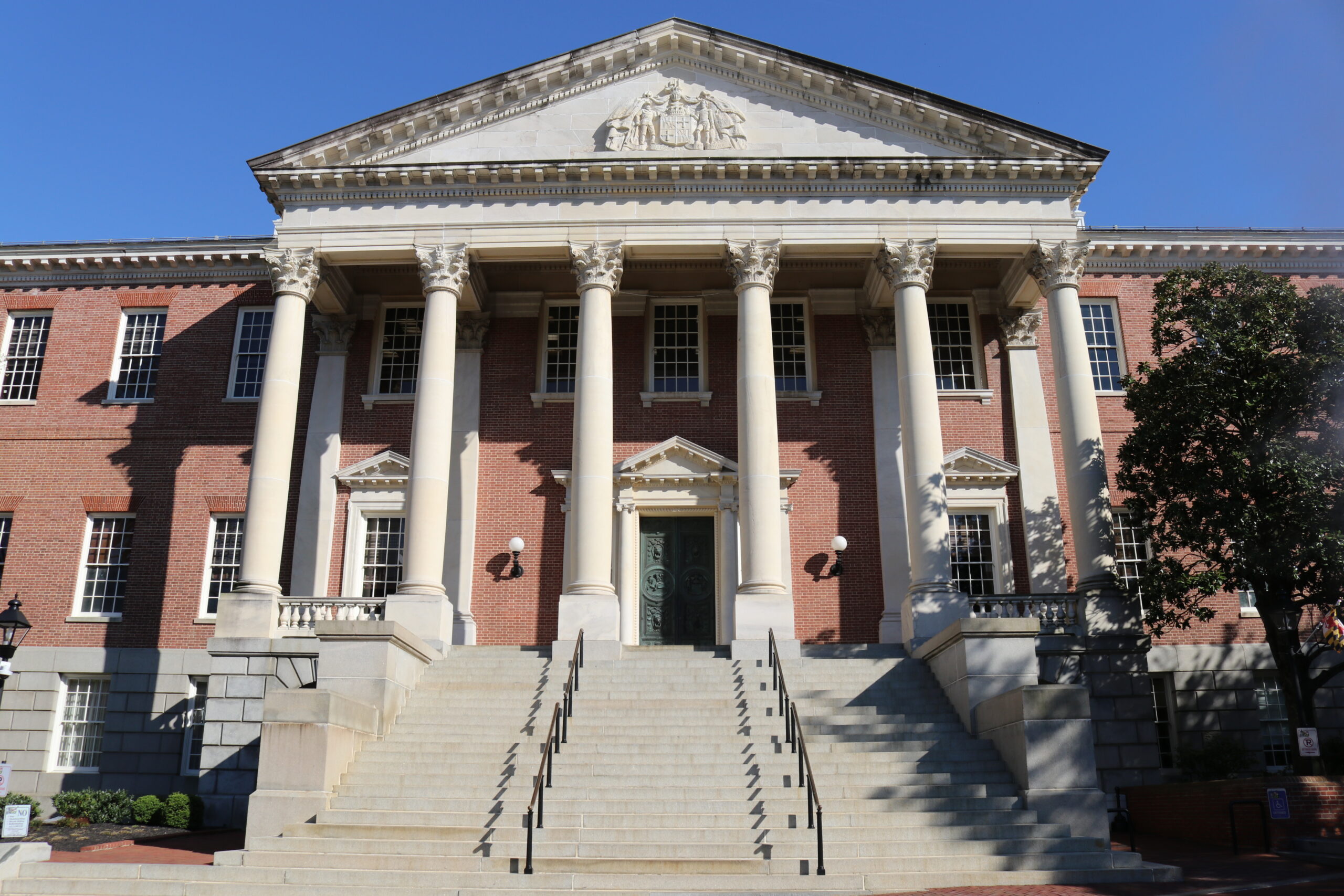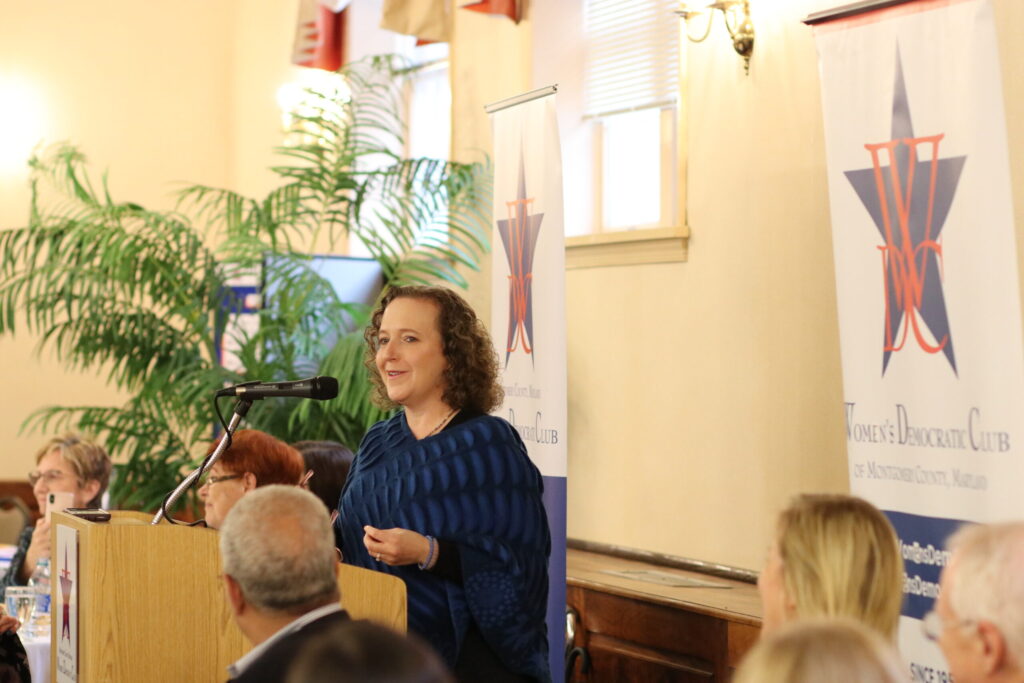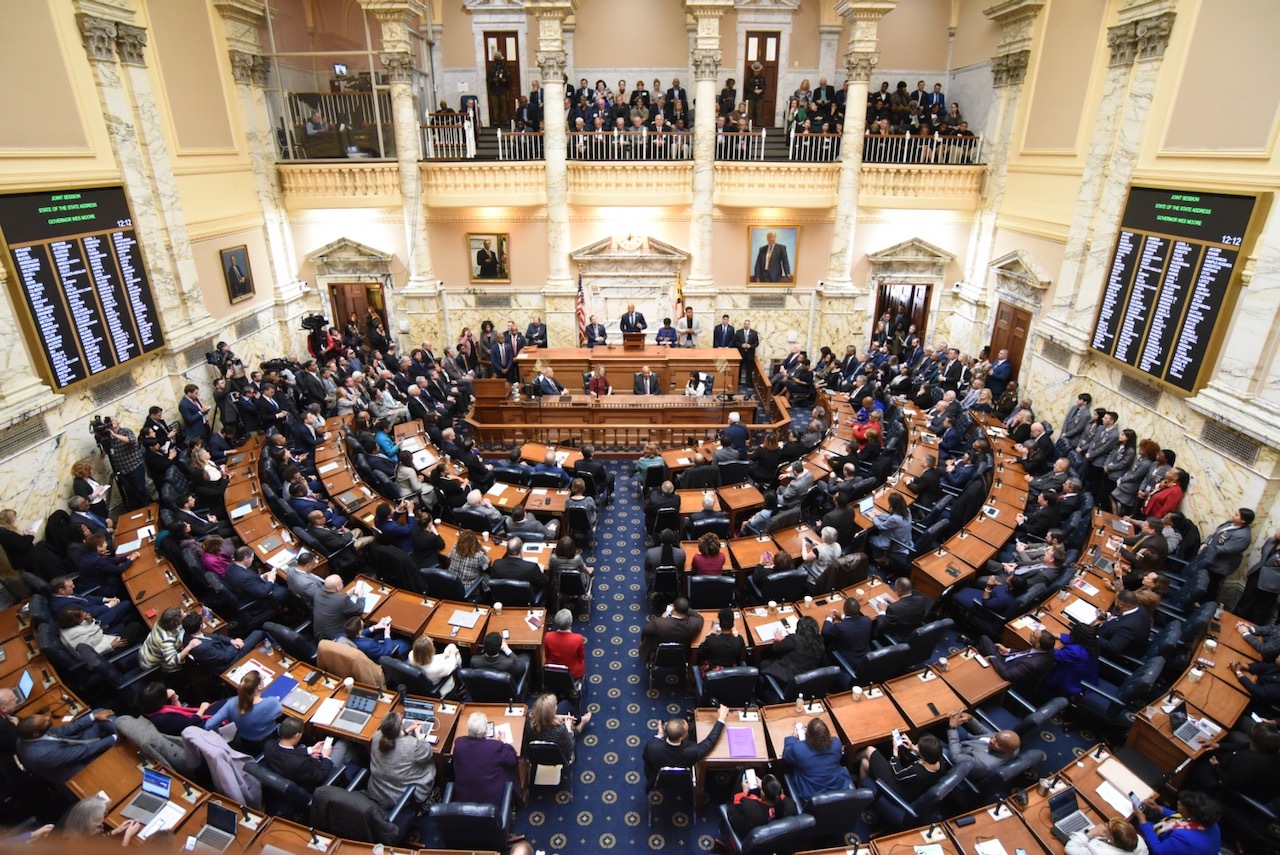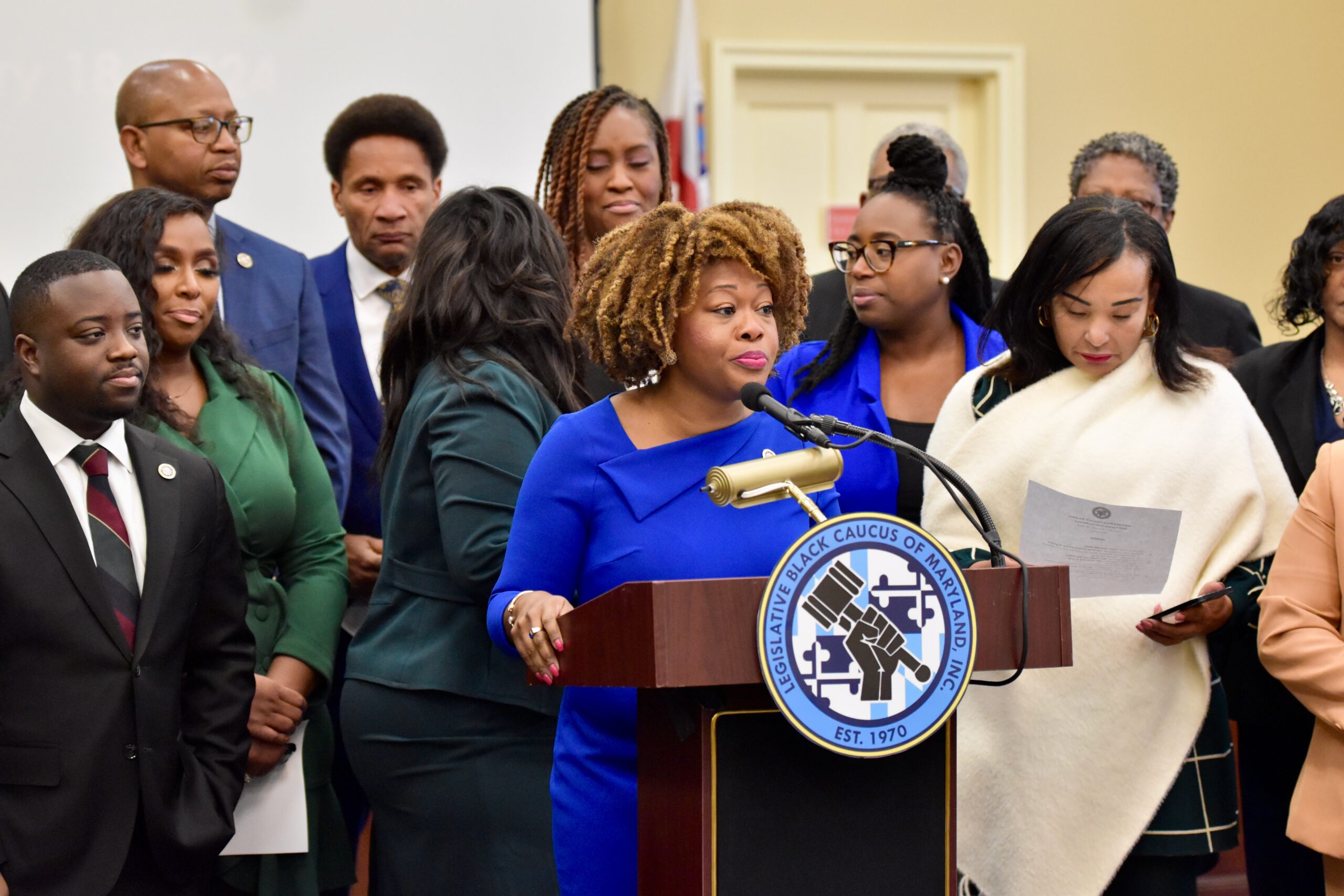
The COVID-19 pandemic and a massive economic downturn have wracked the entire globe, and Maryland is no exception. Almost 300,000 Marylanders have filed for unemployment claims, Comptroller Peter Franchot has called for consumers to request payment relief from creditors, landlords, and utility companies for 90 days, and our state has over 14,000 confirmed cases of COVID-19.
We need far-reaching policies to protect our seniors, our children, the immunocompromised, people without health insurance, the homeless, and other vulnerable populations during this crisis. Legislation that I wrote recently for Annapolis Alderman DaJuan Gay sought to do just that through a wide variety of measures, and I’ve since written proposed federal legislation for Sheila Bryant, a Democratic candidate for Congress in Maryland’s 4th District.
Del. Jheanelle Wilkins (D-Montgomery) recently penned an op-ed for Maryland Matters stating the urgency of a rent moratorium, rather than a rent freeze. This is a very important distinction: a freeze will still require back payment of rent, while a moratorium will not.

Richard DeShay Elliott
With no known end in sight for the quarantine or mass unemployment, this can prevent tens of thousands of families from being evicted and suffering irreparable damage to their financial reputations when the back pay of rent is due. While some homeowners have been granted moratoriums on their mortgages for 60 days, many homeowners and all renters remain unprotected in this moment of crisis.
- Rent freeze is defined as “no increase in the price of rent over what the monthly price was in December 2019. Any rent increases since then, or announced during the process of passing the law, will be rolled back to December prices”
-
Rent moratorium is defined as “complete cancellation of rent, not mandating back payment or the present or future ability to sue or evict for unpaid rents, and will suffer no damage to their credit score/financial reputation”
-
Eviction moratorium is defined as “if a renter is not able to pay the rent while under this State of Emergency, the eviction moratorium states that tenants cannot be evicted for any reason and will suffer no damage to their credit score/financial reputation.”
-
Mortgage moratorium is defined as “if a homeowner is not able to pay the mortgage while under this State of Emergency, the eviction moratorium states that tenants cannot be evicted for any reason and will suffer no damage to their credit score/financial reputation.”
-
Utility moratorium is defined as “complete cancellation of utility payments, not mandating backpayment or the present or future ability to sue for unpaid utility payments”.
-
Moratorium on utility shutoffs is defined as “if a renter does not pay the utilities while under this State of Emergency, the utility shutoff moratorium states that tenants cannot have their utilities shut off for any reason.”
Housing is just one aspect of daily life that will be altered dramatically and needs state legislation to address as soon as possible.
While a special General Assembly session had been tentatively planned for late May, it has been put off indefinitely. But the House Speaker and state Senate President are still likely to advance legislation related to the pandemic legislation at some point. Here are some examples of short-term and longer term challenges that are crying out for policy prescriptions:
- Hospitals have been forced into triage (forcing some patients to die for the sake of saving others) in New York, Italy, and other places. If we construct/convert more public areas into field hospitals, including hotels, churches, and school buildings and force manufacturers to begin work on ventilators, we can prevent this from occurring in Maryland too.
-
Banks can still charge overdraft fees and check cashing fees, sucking away even more precious dollars from the poorest people in our state. How much of the $1,200 federal checks will be eaten up by check cashing fees? We need to ban overdraft fees, check cashing fees, loan usury, and other banking fees that will suck money away from vulnerable Marylanders during the State of Emergency. We must also ban automatic garnishment of stimulus checks.
-
Seniors are the most vulnerable to this virus and need special protections. Seniors are still being targeted by scam callers who want their private information and door-to-door “salespeople” claiming to have COVID-19 tests, which should have increased punishments during the State of Emergency. Vital prescription medications are needed in their hands immediately, and food/water supplies need to be distributed to them directly. The Maryland Department of Health can be given authorization to bulk purchase generic medications that can be provided to seniors and other vulnerable populations.
-
Schools are closed for an indefinite period of time, and most childcare facilities in Maryland are closed. E-learning is difficult to impossible for students without quality Internet and materials. We need a standardized metric of gauging grades and attendance, to provide quality Internet and laptops for all of Maryland’s students, and ensure free childcare for essential employees.
-
Undocumented immigrants, prisoners, elderly and disabled persons who are listed as dependents won’t qualify for stimulus checks, among others. Maryland needs to cut a stimulus checks for these excluded populations to ensure they aren’t left out.
-
College students are not guaranteed to get refunds for room and board, and many will not be eligible for the $1,200 federal checks. Maryland can offer $1,200 directly to college students who are listed as dependents to ensure that they are not completely left out of the bailout, and guarantee refunds from all public and private universities.
-
State employees have had their hazard pay cut by Governor Hogan, though some have gotten a small bump. Essential workers and state employees have finite amounts of paid sick leave, and not enough personal protective equipment (PPE). Essential employees, particularly grocery store workers, must be required by law to have sick leave, hazard pay of at least double their ordinary pay, and PPE. Workers with public-facing positions deserve seating and protective shields to reduce discomfort and chance of viral spread.
-
Several prisoners have tested positive for COVID-19, endangering the lives of other inmates, correctional officers, and others. Hogan has not committed to allowing prisoners to be freed to mitigate this concern. We must release prisoners, particularly the elderly and juveniles, to reduce the spread.
-
Domestic violence has spiked around the country, endangering the lives of many spouses and children. Those at risk of domestic violence deserve to be relocated to vacant housing such as hotels and government buildings during this crisis.
-
Parents-to-be face the danger of hospitals being overwhelmed and infectious, necessitating alternative options. Midwives and doulas should be federalized to increase opportunity for home births or otherwise facilitate births outside of our hospitals, while births should be guaranteed to be covered by insurance.
-
Many Marylanders, particularly frontline workers such as nurses and doctors, are being traumatized day by day. Marylanders staying in their home are suffering from anxiety, depression, and ennui. We need to federalize psychiatrists, psychologists, social workers, therapists, and other mental healthcare providers to serve as state employees and protect our neighbors from further mental traumas.
-
Hogan’s shelter-in-place order mandates up to a year in jail or a $5,000 fine for violations. This fine should be set relative to income rather than serve as a flat fine that could bankrupt some Marylanders but be barely noticeable to others. We must also study the racial impact of this virus, as Black and Brown Marylanders are more likely to have co-morbidities and to lack adequate health care coverage, and the shelter-in-place order.
-
Maryland’s homeless population is particularly vulnerable to COVID-19. All persons without shelter must be granted housing in hotels, motels, or government buildings during the State of Emergency.
-
The slowdown on the roads is granting a unique opportunity: we must push forward an infrastructure program to upgrade our roads, bridges, and transportation hubs across this state. From West Baltimore’s pothole-ridden street’s to the New Carrollton Metro station’s broken escalator, an infrastructure revitalization plan will be an investment for the future.
-
The April 28 election has been pushed back to June 2 and it remains unclear if there will be an in-person voting option or how we will accommodate the many voters who risk being disenfranchised by a mail-in ballot because they have moved without changing their address, are away from home, etc. We need legislation that clears this up and makes sure every voter is informed about how they can participate in the election, without risking the health of voters or election judges. Vote by mail info. should be broadcast on radio, robocalls, and text messaging across our state.
-
Maryland’s tax revenue is going to dry up, as consumer spending decreases significantly and many workers delay their state tax payments. Maryland can authorize no-interest bonds of $1, $5, $10, $50, $100, $250, and $1,000 to supplement the lack of tax revenue, and tolls/public transit should be made free for the duration of the State of Emergency for all Marylanders.
-
Just as many Marylanders will not be able to afford rent, many others will be unable to pay their utilities, insurance, and car notes. Maryland can implement a moratorium on these expenses as well one that removes the ability to sue for backpayment or shut off utilities/repossess vehicles.
The Joint COVID-19 Response Legislative Workgroup is composed of the following members. We must make sure that the priorities of all Marylanders are centered in a response, and that holes in the COVID-19 response legislation don’t leave our neighbors out.
- State Senate President Bill Ferguson (D-Baltimore City)
-
Senate President Pro Tem Melony Griffith (D-Prince George’s)
-
Senate Budget and Taxation Chair Guy Guzzone (D-Howard)
-
Senate Minority Whip Stephen Hershey (R-Upper Shore)
-
Senate Minority Leader J.B. Jennings (R-Harford)
-
Senate Finance Chair Delores Kelly (D-Baltimore County)
-
Senate Majority Leader Nancy King (D-Montgomery)
-
Sen. Clarence Lam (D-Howard)
-
Senate Education, Health and Environmental Affairs Chair Paul Pinsky (D-Prince George’s)
-
Senate Budget and Taxation Jim Rosapepe (D-Prince George’s)
-
Senate Judicial Proceedings Chair Will Smith (D- Montgomery)
-
Sen. Jason Gallion (R-Harford)
-
Speaker of the House Adrienne Jones (D-Baltimore County)
-
Speaker Pro Tem Sheree Sample-Hughes (D-Middle Shore)
-
House Majority Leader Eric Luedtke (D-Montgomery)
-
House Minority Leader Nic Kipke (R-Anne Arundel)
-
House Minority Whip Kathy Szeliga (R-Baltimore County)
-
House Appropriations Chair Maggie McIntosh (D-Baltimore City)
-
House Health and Government Operations Chair Shane Pendergrass (D-Howard)
-
House Economic Matters Chair Dereck Davis (D-Prince George’s)
-
House Appropriations Vice Chair Michael Jackson (D-Prince George’s)
-
House Health and Government Operations Vice Chair Joseline Peña-Melnyk (D-Prince George’s)
-
House Majority Whip Talmadge Branch (D-Baltimore City)
-
Delegate Jeff Ghrist (R-Upper Shore)
— RICHARD DESHAY ELLIOTT
The writer is a Political Science Ph.D candidate at Johns Hopkins University and campaign manager for Logan Endow for City Council in Baltimore’s 4th District. You can find him on Twitter at @RichElliottMD and on Facebook.




 Creative Commons Attribution
Creative Commons Attribution